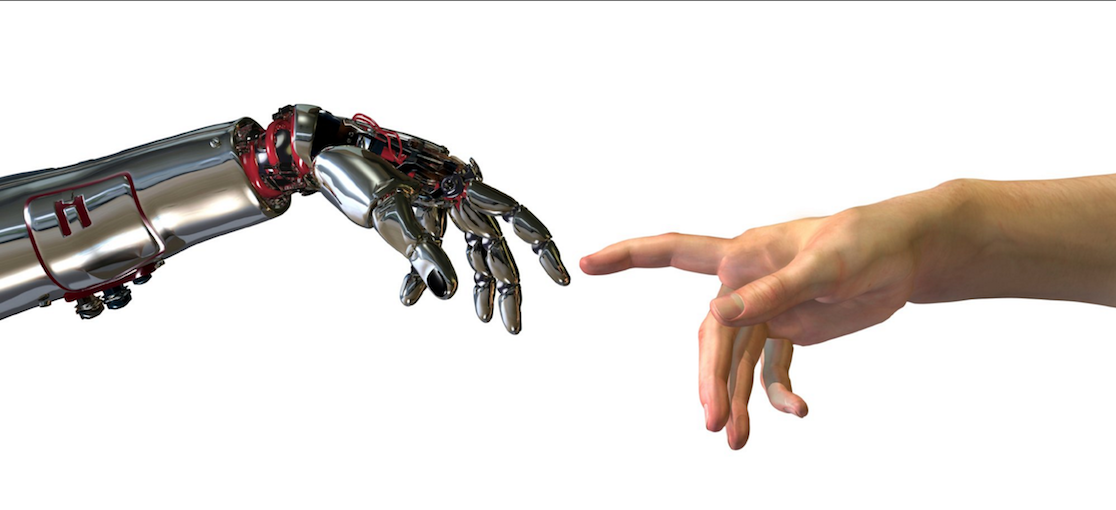 I want you to take a moment and think about your past week. Specifically, I want you to think about everything you did that required interaction with some form of artificial intelligence (AI). How many of you had the opportunity to speak with Siri or Alexa? Did you listen to your favorite genre on Pandora? Maybe you shopped at Amazon? Then again, perhaps all you did was have Alexa talk to your Nest thermostat to adjust the temperature before you got home. The reality is that there are very few of us who do not interact with some form of AI on a daily basis, and these interactions will be commonplace for almost everyone in the very near future. AI will be the tool that has unlimited potential across many sectors, but there is one thing that AI lacks, emotion! So what happens when we arrive at the intersection of the Artificial Intelligence Highway and the Emotional Intelligence (EI) Boulevard???
I want you to take a moment and think about your past week. Specifically, I want you to think about everything you did that required interaction with some form of artificial intelligence (AI). How many of you had the opportunity to speak with Siri or Alexa? Did you listen to your favorite genre on Pandora? Maybe you shopped at Amazon? Then again, perhaps all you did was have Alexa talk to your Nest thermostat to adjust the temperature before you got home. The reality is that there are very few of us who do not interact with some form of AI on a daily basis, and these interactions will be commonplace for almost everyone in the very near future. AI will be the tool that has unlimited potential across many sectors, but there is one thing that AI lacks, emotion! So what happens when we arrive at the intersection of the Artificial Intelligence Highway and the Emotional Intelligence (EI) Boulevard???
Maybe we should begin by asking, “What will it mean to be smart in the future? Ed Hess co-author of Humility Is the New Smart: Rethinking Human Excellence in the Smart Machine Age addresses this question in his HBR post, “In the Future, Being Smart Will Mean Something Completely Different” Hess begins by sharing a research prediction that the likely automation (a form of AI) of jobs in the service and professional sector will be tenfold that in the current manufacturing sector. He suggests that we cannot go toe to toe with AI, a far more formidable competitor, as we have with other humans Hence, we must begin by changing our definition of what it means to “be smart.” To date, being “smarter” than other people was measured by grades and test scores. The smart people were those that competed well, and received the highest scores by making the fewest mistakes. The new smart will be determined not through competition and high test scores, rather it will be measured by the quality of your thinking, listening, relating, collaborating, and learning. We will need to focus on developing those skills that require communication, collaboration, creativity, critical thinking (The four C’s) and high engagement. Skills that meet the emotional needs of other human beings! Hess’ closing remarks are powerful, “The new smart will be about trying to overcome the two big inhibitors of critical thinking and team collaboration: our ego and our fears. Doing so will make it easier to perceive reality as it is, rather than as we wish it to be. In short, we will embrace humility. That is how we humans will add value in a world of smart technology.”
“We will embrace humility!” How powerful is that? So if we have a new definition of “Smart” in an AI era, how can schools and parents prepare our children for this workforce?
In his post, “How to Raise Kids That Can Outcompete Robots for Jobs”, Eric Mack, a columnist at Inc.com suggests that parents embrace the shift from a child-rearing model that promoted competition, individualism, and recognition to one that fosters humility, a love of learning, and an environment that encourages experimentation and even failure. He challenges parents, “Teach them to be curious, to learn something new every day, to read every day, to have the courage to try when failure is a possibility. Likewise he encourages parents to model the behavior.
David Kosbie, Andrew Moore and Mark Stehlik suggest that If the next generation is to use AI and big data effectively, we need to prepare them now. Their HBR Post, How to Prepare the Next Generation for Jobs in the AI Economy suggests some EI adjustments in elementary education and some “major long-due upgrades in computer science education at the secondary level. The authors encourage collaborative and problem-solving activities at the elementary level. They also recommend that elementary students be introduced to the study of ethics, as AI technologies will face ethical issues daily. Ironically, they do not emphasize a need for the formal instruction of computer programming prior to high school (“coding is something kids can pick up later on in their education”) At the secondary level they strongly emphasize a need to re-address the instruction of computer programming (to be required of all 9th graders) and STEM-related courses including robotics.
That being said, I just asked Alexa to brew another cup of coffee and adjust the thermostat. She’s such a sweetie! I’d buy her flowers but I don’t think she’d appreciate them and I don’t want Siri to get jealous! Have a great week and Embrace the Challenge.
